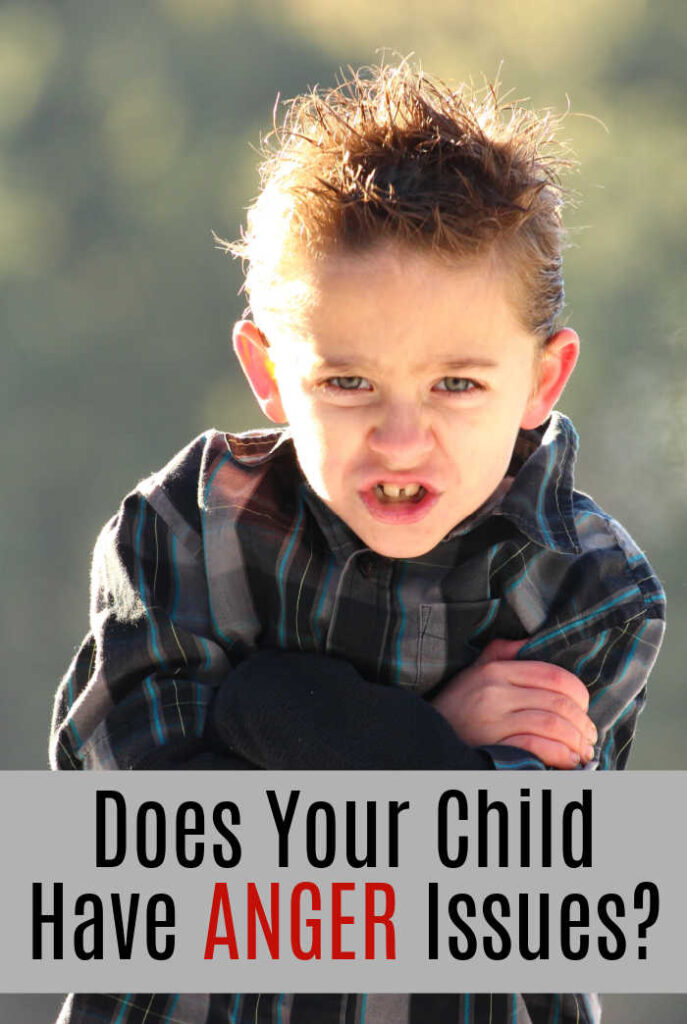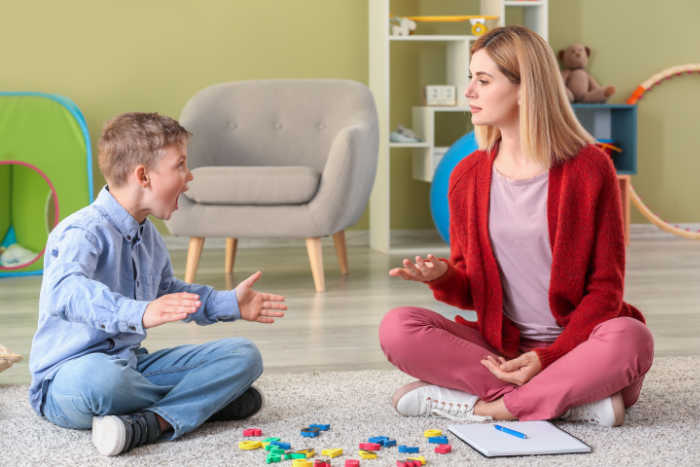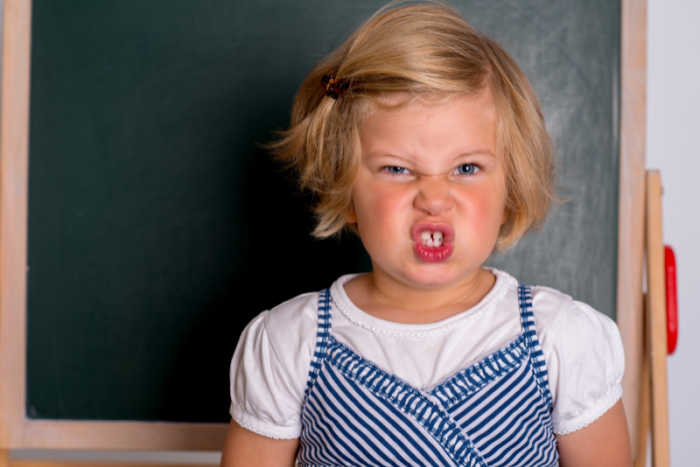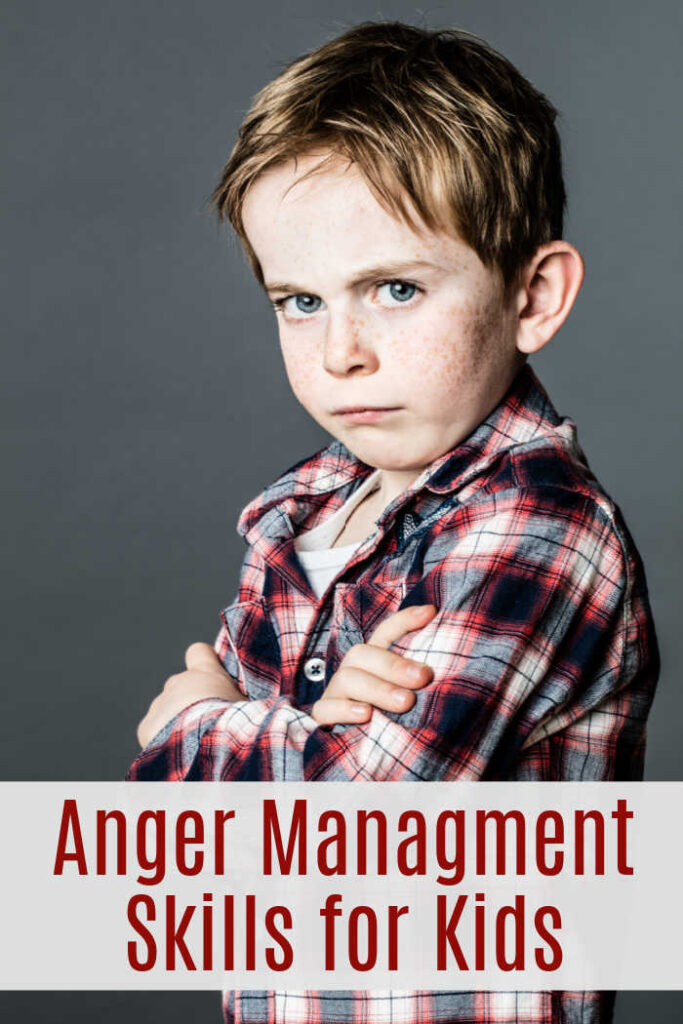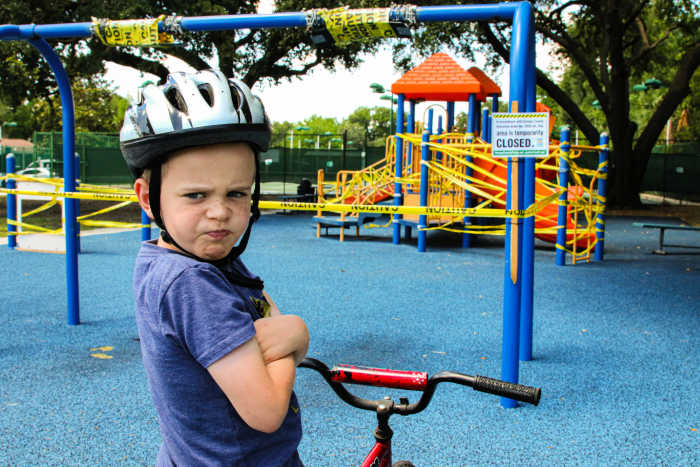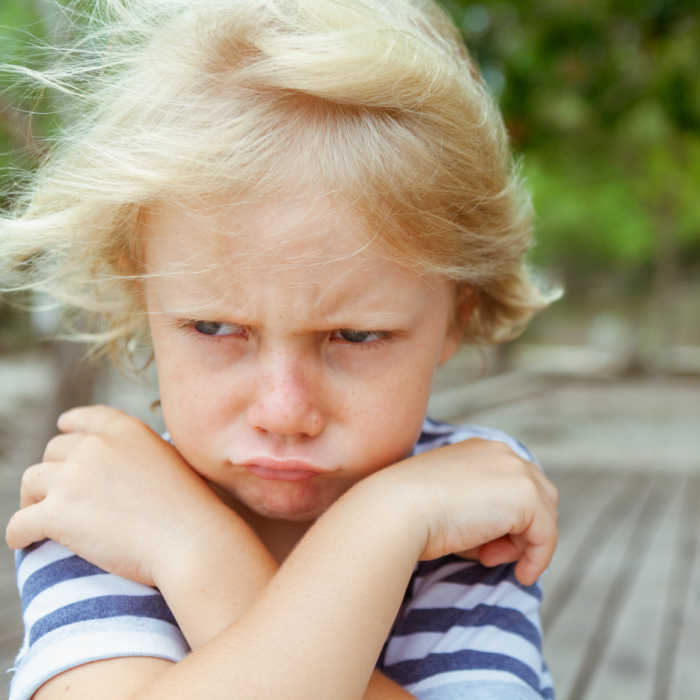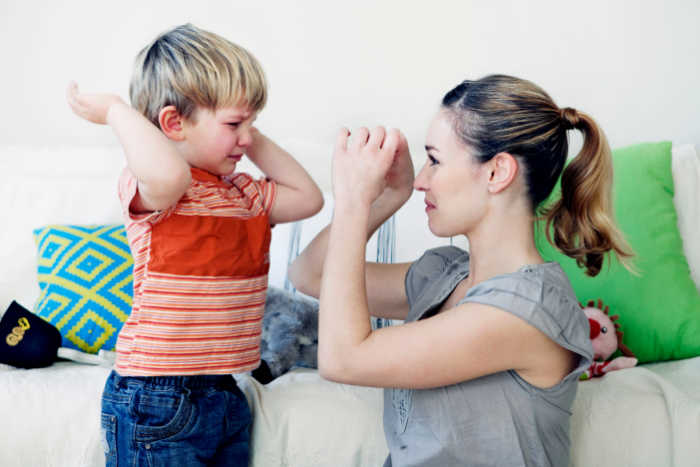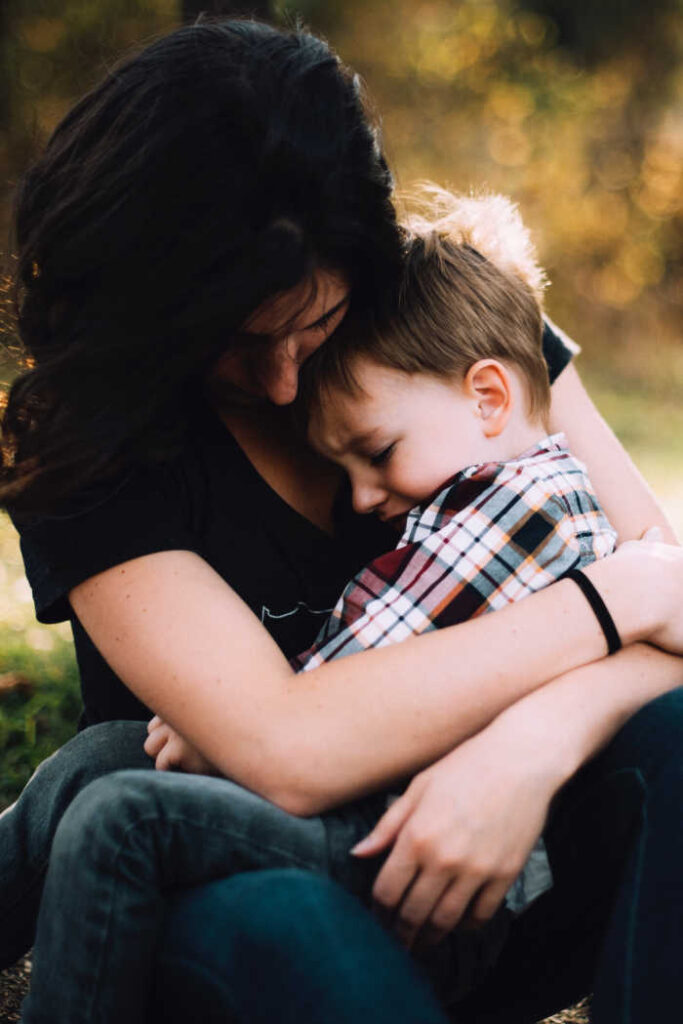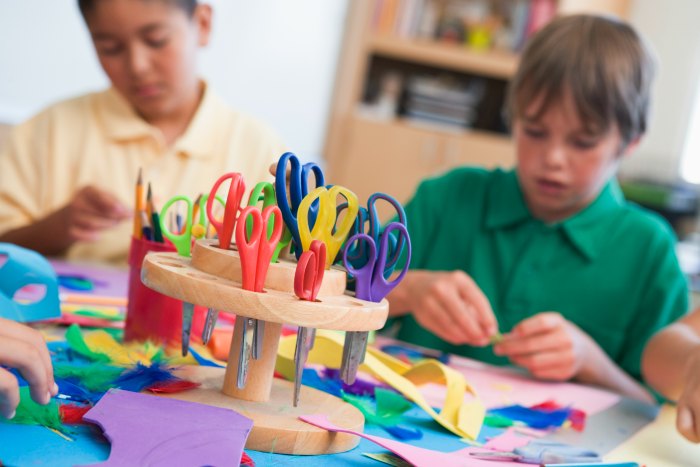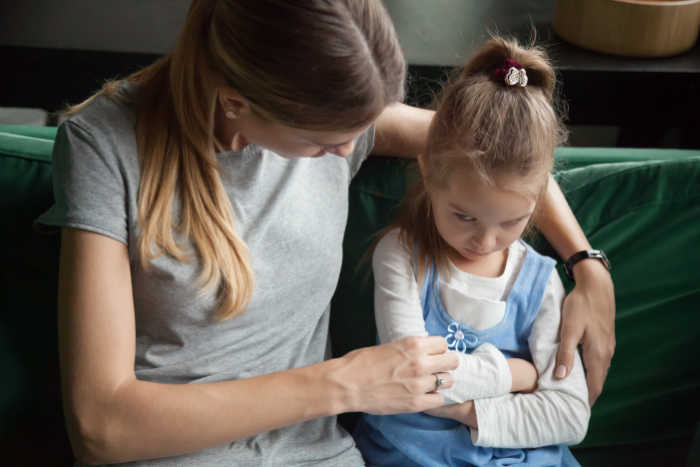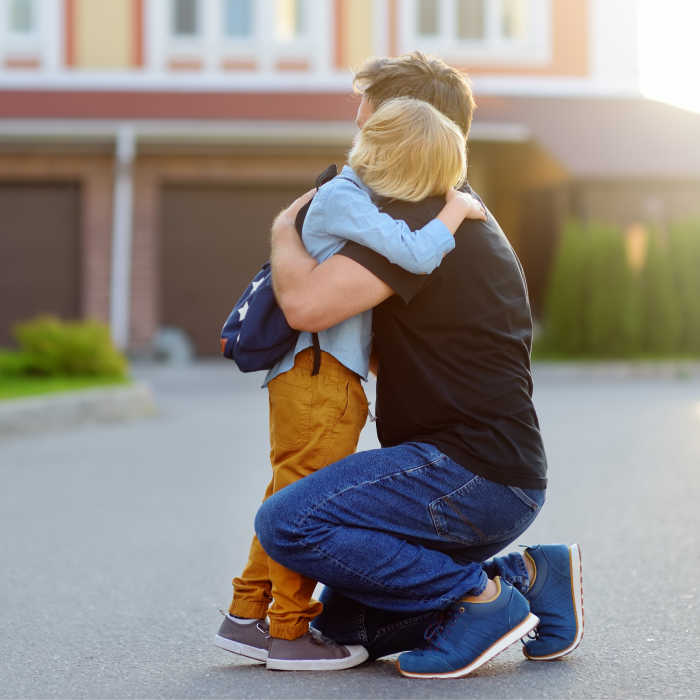6 Tips How to Teach Your Child Anger Management Skills
Does your child need anger management help?
Anger is a natural human emotion.
Everyone, even children, get angry from time to time, and it’s absolutely normal!
However, it’s not normal when anger transforms into cruelty, violence and aggression.
Be sure to check out even more of my helpful parenting tips, too!
To prevent aggressive behavior, parents should help their kid understand the difference between feeling angry and acting on that feeling.
Although psychologists have developed many different child anger management strategies, let’s focus on some of the most effective.
But first, let’s find out if you really are dealing with a child with anger management issues.
How to Know if Your Child Has Problems Managing Anger
Anger is a strong negative emotional response when a child’s needs aren’t met.
It’s an unplanned reaction followed by physical and verbal outbursts.
Whereas aggression always has a purpose.
Using it, children consciously try to achieve their goals.
However, it’s important to understand that all emotions (not behaviors!) are useful and play some role in a child’s life.
For instance, anger helps adapt to a situation perceived as a threat and reduces fear.
Children typically experience short-term outbursts of anger.
But if such a reaction repeats often, it can become a stable feature of the child’s personality.
Here are some signs that you may have a child with anger issues if your kid:
- loses their temper over the slightest trifles
- uses threats when they talk
- blames others for their aggressive behavior
- experiences anger for long periods
- can’t express their feelings
- hurts themselves when they get angry
- only responds to discipline
- can’t stop during temper tantrums and loses self-control
Sometimes, you may notice child’s anger problems right away.
But in some cases, you may need carefully observe your child’s behavior and reactions.
If you notice some of the signs mentioned above, you may want to learn how to deal with an angry child and help them help themselves as well.
6 Effective Child Anger Management Skills
Anger management is an essential skill that helps children understand how to channel their anger in a safe direction.
It doesn’t mean that kids will suppress or deny their feelings.
On the contrary, anger management skills help prevent aggressive outbursts that can harm them or people around them.
Your task as a parent is to teach your child to cope with anger in a healthy way.
Here are some effective tips on how to do it.
Teach Your Child to Identify Their Emotions (including anger)
Explaining anger to a child is the first thing parents should do when they notice a problem.
Before kids learn to deal with it, they should recognize and understand their emotions.
This skill is helpful for children of all ages.
Young kids can learn to recognize what they feel through facial expressions.
For example, you can make a collage with sad, happy, angry faces and ask your child to choose the one that matches how they feel right now.
Older children should learn about their emotions by describing them.
You can lead by example by talking about the child’s reactions you observe.
For example, you can say, “I noticed you got irritated when I asked you to do something” or, “I think you are angry because you clenched your hands into fists, and your face is red.”
Identify Triggers that make them Angry
Clinical psychologist Dr. Bethany Cook says, “Anger is a superficial, or secondary emotion, meaning it is a response to another emotion being triggered first.”
R. Douglas Fields, a neuroscientist at the University of Maryland, identified 9 triggers that can provoke anger both in children and adults. They include:
- Life/Death situations
- Insult
- Family
- Environment
- Mate
- Order
- Resources
- Tribe
- Stop
Family and environment are the most critical triggers for a child.
Children copy their family members’ behavior.
For example, if their dad’s always rude or their mother raises her voice every time their brother slams the door, the child will do the same.
Therefore, to succeed in child anger management, you need to become a good role model.
If your kid was always polite and kind but they suddenly begin to express aggression, use bad words, tear books or break things, they may have copied this behavior not from your family but from another environment (kindergarten, school, friends, etc.).
So talk to your child and help them understand the situation.
Try to find a better way to resolve the problem together.
Children can also get angry when they are scared, worried and don’t understand what’s going on in their lives.
They may be bullied at school, have friendship issues, struggle with exams, suffer hormonal changes during puberty, etc.
If the problem comes from outside your family, it makes sense to contact the appropriate specialists.
For example, if your kid has anger issues in school, you can talk to the school psychologist.
If your child goes to kindergarten, discuss anger management for kindergarten-aged kids with their nursery teacher.
Set Household Rules for Expressing Anger
Different families can tolerate different types of angry behavior.
Therefore, you should create your own family rules your kid can use to express their emotions.
These rules should also determine what behaviors they need to avoid.
For instance:
- No door slamming
- No physical aggression
- No verbal abuse
- No yelling at each other, etc.
Emphasize that anytime anyone has a wave of anger, they should still treat others with respect.
Offer Healthy Alternatives to Vent the Anger
When a child experiences anger, adrenaline is released, the heart rate goes up and blood pressure rises.
As a result, your child feels strength and energy, which increases the risk of aggressive behavior.
At such a moment, it’s critical to redirect adrenaline to something more productive and less harmful.
Physical activity is one of the most effective ways to manage anger for adults and children.
So invite your child to run or do some exercises.
It’s even better if you do it together.
Offer your kid some healthy options to relieve tension.
For instance, you can say, “You can’t beat others when you’re angry. Instead, you can…” and propose to throw pillows or soft toys on the floor or in a basket, dance this anger out, make faces in front of a mirror until rage gives way to laughter, etc.
Suggest Some Calming Activities for Anger
Releasing anger through some kind of active action may not work for all children.
Moreover, sometimes circumstances don’t allow it.
Another option is to teach your kid to calm down.
Talk to your child about breathing techniques and how they can use them when feeling angry.
Deep breathing is a great way to relax. Several deep breaths and slow exhalations (for example, counting to 5) can relieve pressure and calm down a child.
Another deep breathing technique is to breathe into your hands.
A kid can feel their breath and its power by exhaling into their hands.
Focusing on exhalation, children can bring themselves into balance.
You can also take your child to a quiet place, away from triggers that make them angry.
Art therapy can be an effective technique of anger management for preschoolers and older children.
Ask them to draw their emotions.
Colored drawings will help kids turn their anger into something creative.
Playing music, modeling and other activities can become a way to express yourself and your emotions.
Moreover, children whose parents encourage their creativity have better emotional intelligence, which is critical for recognizing and using emotions.
Use Consequences and Positive Reward to teach anger management skills
A positive reward is a more effective way to develop anger management skills than punishment.
Therefore, if you notice that your child’s trying their best to cope with anger and observe all the established rules, try to follow through with positive consequences.
When your child chooses words over aggression, tell them, “Well done for calmly telling your friend you don’t like it when he takes your robot without asking you,” or “You took a time out to avoid conflict with your younger sister. In this case, it was the best way out. Good job!”
You can even develop a reward system to encourage your kid to use the family anger management techniques mentioned above.
However, if your child consistently breaks the rules and continues to express aggression or disrespectful behavior, some negative consequences can also come in handy.
It will help the child trace the cause-and-effect relations.
Losing some privileges or doing extra chores can be effective discipline strategies.
But it’s crucial to understand that it doesn’t work for everyone.
So before using it to handle an angry child, you need to be 100% sure that you’ve clearly explained what anger is and how to manage it.
What’s next?
Holding emotions inside affects physical and mental health.
Moreover, the aggressiveness provoked by anger can lead to children having problems communicating and interacting with other people.
As a parent, it’s important to know how to express your emotions without harming yourself and the people around you and teach your kids how to do it.
Being emotionally immature, children can have a hard time controlling their feelings, and it’s our responsibility to help them.
However, if you feel that the anger outbreaks turn into uncontrolled aggression and you can’t cope with the situation yourself, it’s better to consult a child psychologist.
This specialist can suggest anger management strategies and other support resources that will work for your kid.
About author Natalie Maximets
Natalie Maximets is a certified life transformation coach from OnlineDivorce.com with expertise in mindfulness and sustainability.
She is a published author focused on the most progressive solutions in the field of Psychology.
Natalie helps people go through fundamental life challenges, such as divorce, and build an entirely new life by reframing their personal narrative.

